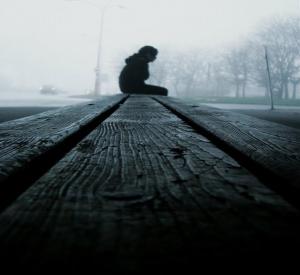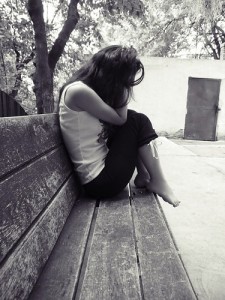 When fate is the hunter, and we are suddenly in trouble and alone, one healing solace remains
When fate is the hunter, and we are suddenly in trouble and alone, one healing solace remains
The pain hit me in the back, sent me sprawling onto the damp lawn. I had gone into the garden on a fine spring day to inspect a honeysuckle bush for new growth. I grasped a branch and tugged gently, with no greater force than would be necessary to open a mailbox or lift a carton of milk from the refrigerator. But there was nothing gentle about the pain. It came full force, driving deep into my body. I fell, writhing like a man having a fit.
My back problem was nothing new. As a young man I had abused my back recklessly: lifting 80-pound bales of hay onto semi-trailers, trying to throw a bale higher than the other loaders. I had run full tilt into halfbacks on the football field and felt the impact compress my spine. Since then, I had paid the price in pain several times.
But this pain was different. I was on my back, pinned as tightly to the earth by pain as Gulliver had been by the Lilliputians. If I so much as tensed an arm or a leg, it returned in full force. I could not even raise my head. I was paralyzed.
From my position on the ground, I could see the tender new maple leaves unfolding; I could hear birds singing, seeking mates. There was new life all around me. I lay still and watched and listened. There was nothing else I could do. I was alone. My wife was away for three days on a business trip; our only near neighbors were gone for a week. I was completely alone.
The realization hit me quickly, and just as quickly I decided not to dwell on it – not just yet. I had recently had another experience with being alone and in need, and I hadn’t liked it.
It was in December, just before Christmas, when my wife and I had been called to a hospital in Albany, N.Y., where a niece lay ill. Bridget was driving. We were nearly in the city when, out of the corner of my eye, I saw headlights coming up fast behind us. I turned in time to see a car come up over the trunk and to feel our car break loose form the road to begin a wild skid.
We were absolutely silent, Bridget and I. the other car was buried deep in our side now, and we were drifting sideways down the thruway, over the grassy median and into the oncoming traffic. I watched and wondered, almost casually, if we would be killed or hurt. I tried to think what we might have done wrong. Nothing. This was happening, and there was nothing we could have done to stop it. Then we skidded back onto the median and stopped. Both of us were unhurt. Bridget’s hands were still on the steering wheel. I reached over and switched the engine off.
Traffic swooshed past us on both sides as I stepped out. A young man stepped from the other car and stood up. “You okay?” he asked.
“Yes,” I said. We were all safe. All of us. I was still seeking a flaw in this good news when I heard him say, “I’m sorry. I’m awfully sorry.”
Those words, the only words he had, the only correct words, were so inadequate I felt a flash of anger. “What happened?” I asked.
“I fell asleep,” he said.
I found a flashlight and made a clear arc of light as I waved it from beside the road. No one stopped. Anger came again, and frustration. My car was sticking out nearly into the road. No one could fail to see it. Extensive damage to both cars was clearly visible. Passing drivers swerved; they slowed down to look; but they did not stop.
 What could they be thinking? I knew very well what I was thinking. What if Bridget were bleeding to death? What if the young stranger who was sorry had a thighbone rammed into his belly? What would make them stop?
What could they be thinking? I knew very well what I was thinking. What if Bridget were bleeding to death? What if the young stranger who was sorry had a thighbone rammed into his belly? What would make them stop?
Half an hour passed, and just as I was about to bitterly reassess my opinion of mankind, I turned around and saw a man striking a flare. By the time I ran to where he had stopped, he had a flare burning in each hand. He did then what I had expected at least half of the hundreds of passing cars to do: he ascertained that we were safe and went to call assistance.
From time to time, a car would pass our house. I found myself thinking how foolish I must look lying there on the damp ground. Suddenly I felt embarrassed, and wondered why. One should not feel embarrassed about something over which one has absolutely no control. Yet, people do. I had been embarrassed about writing to my neighbor, Abe, two months before, because I knew he was going to die and I did not know what to say to him. And I had continued to be embarrassed, mulling over what I had said, as I walked in the yard or sat before an evening fire, trying to guess how he felt about it.
Abe was in his 60s, full of life, eternally curious, a man of big spirit who had lots to do, many places to go. Abe had a backache, too. Then I heard he had gone into a hospital in another area of the state to have it examined. The diagnosis was not a stripped muscle or a crushed disc, as I so blithely imagined it would be. The diagnosis was cancer.
I got the news from another neighbor, and I knew by his averted eyes that Abe would not recover. I could not help but connect Abe’s illness with our auto accident. He had lived as carefully and as wisely as we had driven, yet calamity had sneaked in.
“I am sure,” the neighbor said, “that Abe would appreciate a card from you.”
My heart shook at the thought. I knew Abe too well to send a card. That would only seem like an empty social observance. It would have to be a letter.
That night, after throwing away draft after draft, I realized finally and unhappily that I was in the same awful position as the young man who hit our cars. The only correct words, the only right words were “I am sorry.”
Now they seemed even more inadequate and infuriating than the night I heard them in December. I told Abe we hated the thought that he was so desperately sick and we were sorry. I wanted so badly to offer some comfort, no matter how small it might be. But I knew that Abe was too honest in his own life to accept false hope, even from a well-meaning friend. Then I remembered how much he enjoyed the beautiful meadow beside his house. I reminded him that spring was almost here and told him that I had seen the meadow and it was turning green.